Alan Culler
West Orange - New Jersey
Alan Culler
1 year ago
Life After Consulting

Timing!
A few weeks ago I wrote “Arriving for the Break,” wherein I poke fun at my way of being in the world, which might be called ,”contrarian temporal synchronicity,” arriving when the band goes on break, buying high and selling low as investment strategy, and adopting new technology after everyone else has moved on to the next new thing.
In keeping with this tradition, in January I published Traveling the Consulting Road: Career Wisdom for New Consultants, Candidates, and Their Mentors. Surprise! This year it looks like consulting firms are not hiring in the same numbers they did for the last two years; in fact, they are letting go substantial numbers of the bumper crop new hires of the previous two years. Timing!
Consulting is always a boom and bust business. Consultants help leaders change their business in response to new competitors, new technology, new demographic or psychographic trends of customers, global and regional geopolitics and the economies of industries and nations. These influences move up and down in unpredictable ways.
During the past two years the United States has been recovering from the Covid 19 pandemic, which slowed business in general. Technology boomed for a while because of remote work, but then began to retrench. Electric vehicles boomed, after supply chains recovered, but then the charging station deficit hindered further expansion. Banks were hurt by interest rates, as was real estate and construction. Oil and gas declined in the pandemic because people weren’t driving, but then they were, and then not-so-much.
The consulting industry does well in periods of change characterized by consistent growth (new strategies, innovation) or in periods of consistent decline (cost cutting, reorganization, continuous improvement). The industry does less well in periods of systemic instability.
So I got caught.
I wrote a book sharing what I learned as a consulting lifer: how to get hired, how to get promoted and be successful when the job changes as you rise. These are boom-time concerns, but I included some bust-time advice as well.
For anyone who doesn’t know the consulting industry, one of a firm’s primary challenges balancing the size and skill base of its workforce to the needs of its market. Firm partners have often lived through several boom and bust cycles. Especially painful memories were the times when they found clients but had no appropriate staff and had to turn work down or delivered poorly. These senior people often talk about “hiring ahead of the curve this time.”
These same partners seem less concerned about having too many staff. This pain just isn’t as personal (for them); they just cut staff.
Read More
0 likes · 0 comments
BusinessAlan Culler
2 years ago
Consultants Are Everywhere *

In 1991 I wrote about how I was continually amazed at the ubiquity of consulting and how I found it in the most unexpected situations.
My hair cutter then was an unusual man, a dark-skinned Mediterranean, a guy’s guy, a salesman, a dealmaker, quick with a joke or a story. I went to him not just for his stories, but because he cut my hair really well. I found it difficult to find a good cutter, and Mico was a good cutter.
But I did like his stories. I collect stories the way other guys collect beer mats or coins.
One day, Mico started by saying, “You may appreciate this. I mean, because you’re a consultant.”
I told him once what I did; he remembered a lot, at odd times perhaps, but I was still flattered.
“I was a consultant once, to a college, a community college. . . . me, a guy who just made it outta high school. This is one of the only colleges in the country with a course in cosmetology. The state wanted to close them down. They weren’t making any money. They’d had these statistical engineers come in. The state sent them . . . they couldn’t find out what was wrong.”
Mico went on to tell me how he went into the school, observed for two days, then talked to the faculty together and individually and talked to the students together and individually. He explained to each of them:
“This school is yours. When I leave, you’re gonna work or go to school here, if you save it.”
His real-world experience (he had successfully run his own shop for years) and his down-to-earth manner apparently won over faculty and students alike. He made some suggestions; they made some suggestions. Theytook action.
“A year later they paid for my ticket to come back and see what they did. They were profitable. The state was happy. They were happy. And it made me feel good, you know. They gave me a lotta credit when I was there. You know, they said I had turned it around. That made me feel good. But they did it. Probably could do it again without me now if they had to. I see why you like what you do . . . You know, I get a lotta guys who don’t like what they do and I think . . .”
Mico was off on another tale, but I was back at that community college with him. He had described a near-perfect process intervention that had left the client empowered to continue on after he left.
His principles are the consulting process: Enter- Diagnose-Solve - Implement - Disengage
Observe with the eyes of the outsider who knows something about what they do.
Gather input from many sources.
Make suggestions.
Give them their ball back, and then
Leave, get out. fish, relatives, and consultants stink if they’re around too long.
* Always be prepared to find wisdom in unusual places. Drawing wisdom from Mico’s stories started me on my career as a writer. This one is the Preface to Traveling the Consulting Road.

https://mybook.to/ConsultingRoad">https://mybook.to/ConsultingRoad
0 likes · 0 comments
BusinessAlan Culler
2 years ago
Traveling the Consulting Road Available on Amazon
For many years, I was a consultant. I am grateful:
- To every consultant who survived managing me, or working alongside me. You helped me grow.
- To every client who trusted me with improving their organization’s results and all their people who did most of the work. You kept me learning and shared the pride of achievement.
Now I am a writer. I wrote this book:
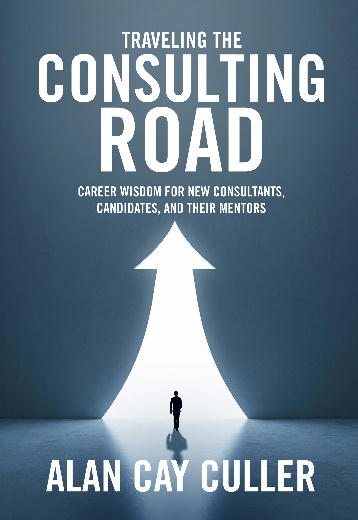
Traveling the Consulting Road is a book about consulting for new consultants, students investigating the field, and for more senior consultants who find themselves coaching newbies. These are the funny stories, lessons-learned-the-hard-way, and tools and methodologies used, from my thirty-seven year consulting career. The book traces the trajectory of a consulting career with information about the evolution of the industry, and specific advice about getting hired, succeeding inside a firm or as an independent if you choose.
I wrote to share what I learned with new consultants and candidates and give some smiles of recognition to old pros and mentors.
Very few writers get rich writing and fewer writing business books. There are a few best selling business book authors Peters and Waterman, Stephen Covey, Jim Collins, James Clear. These folks have raised the bar so high that I can comfortably walk under it.
Still what writer doesn’t want at least some readers. So I hope my LinkedIn connections, followers and group members will read my book and if you like it tell others about it.
As a little pre-New-Year, pre-Launch “Thank you for your support” present I have priced all three versions of the book at a substantial discount for my followers.
It’s on Amazon. You will find it here.
Thanks in advance for your interest and support.
Alan Culler
0 likes · 0 comments
BusinessAlan Culler
2 years ago
Traveling the Consulting Road Available on Amazon
For many years, I was a consultant. I am grateful:
- To every consultant who survived managing me, or working alongside me. You helped me grow.
- To every client who trusted me with improving their organization’s results and all their people who did most of the work. You kept me learning and shared the pride of achievement.
Now I am a writer. I wrote this book:
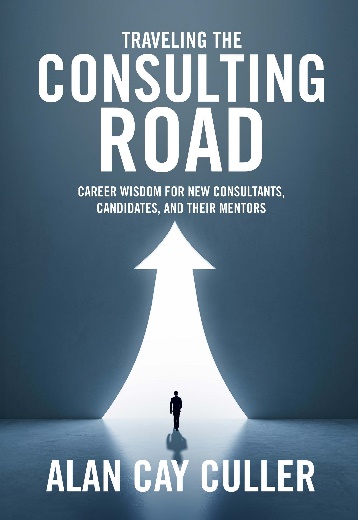
Traveling the Consulting Road is a book about consulting for new consultants, students investigating the field, and for more senior consultants who find themselves coaching newbies. These are the funny stories, lessons-learned-the-hard-way, and tools and methodologies used, from my thirty-seven year consulting career. The book traces the trajectory of a consulting career with information about the evolution of the industry, and specific advice about getting hired, succeeding inside a firm or as an independent if you choose.
I wrote to share what I learned with new consultants and candidates and give some smiles of recognition to old pros and mentors.
Very few writers get rich writing and fewer writing business books. There are a few best selling business book authors Peters and Waterman, Stephen Covey, Jim Collins, James Clear. These folks have raised the bar so high that I can comfortably walk under it.
Still what writer doesn’t want at least some readers. So I hope my LinkedIn connections, followers and group members will read my book and if you like it tell others about it.
As a little pre-New-Year, pre-Launch “Thank you for your support” present I have priced all three versions of the book at a substantial discount for my followers.
It’s on Amazon. You will find it here.
Thanks in advance for your interest and support.
Alan Culler
0 likes · 0 comments
BusinessAlan Culler
2 years ago
Available for the next two Weeks
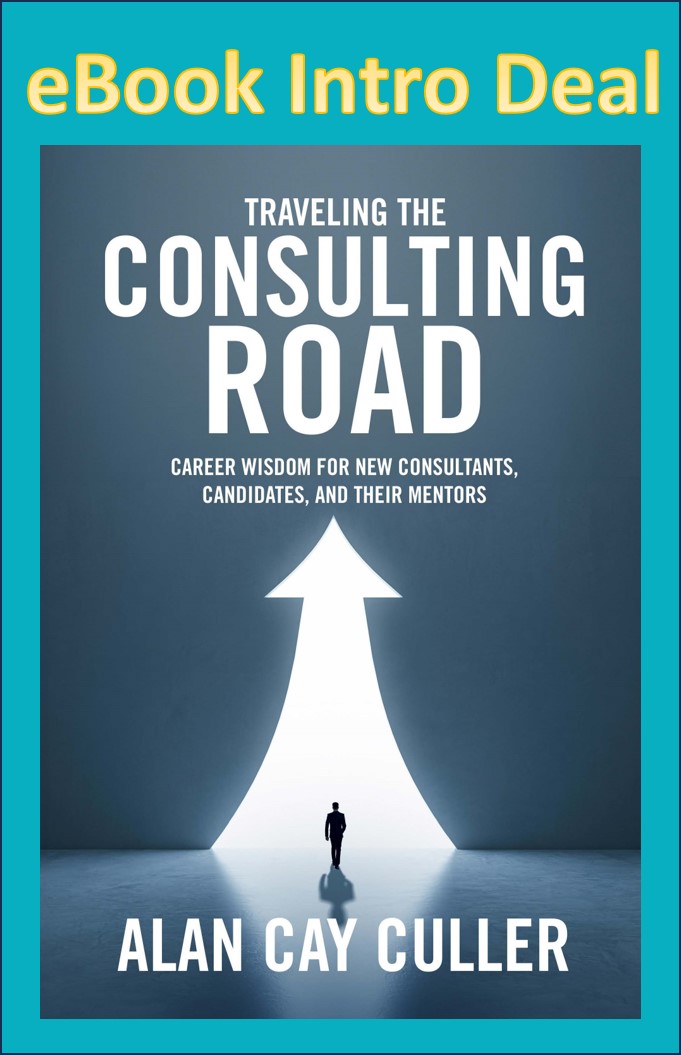
A complete newbie to pro guide to a successful consulting career
eBook available here at a low introductory price
Traveling the Consulting Road is a book about consulting for new consultants, students investigating the field, and for more senior consultants who find themselves coaching newbies. These are the funny stories, lessons-learned-the-hard-way, and tools and methodologies used, from Alan Culler’s thirty-seven year consulting career. The book traces the trajectory of a consulting career with information about the evolution of the industry, and specific advice about getting hired, succeeding inside a firm or as an independent if you choose.
Alan’s stated purpose to help others “avoid the mistakes I made. “I succeeded in spite of myself, but it wasn’t always the best path.” Alan’s ability to poke fun at himself makes for easy reading and the insightful descriptions will help candidates evaluate the field and new consultants be successful. Alan often says, “Don’t do what I did! This is what I wish I understood at the time.”
His advice “Be authentic! You are the product ̶ help clients change results in their business.”
0 likes · 0 comments
BusinessAlan Culler
2 years ago
Coming soon
Consulting Wisdom from Unusual Places
Is Consulting Wisdom an Oxymoron?
Hey Newbie, Listen up!
So You Want to be a Consultant?
Traveling the Consulting Road.
Almost six years ago I retired from consulting after thirty-seven years and I hatched a plan. I would write -first on LinkedIn, then on other social media platforms. I would share what I had learned so far in my life and maybe I might save others from making the same boneheaded mistakes I made along the way.
Then I put up a blog Wisdom from Unusual Places in three categories: Consulting, Leading and Living. Now I’m going to publish my first book:
Traveling the Consulting Road: Career wisdom for new consultants, candidates and their mentors.
The book is about consulting for consultants and those investigating the field. It is what I wish I knew at each stage of my career: Newbie, Journeyman, Pro. And of course there are stories, but also some tools and methodologies I found useful in helping clients change their business.
The book will be out in early January, but subscribers to Wisdom from Unusual Places, and beBee followers will get early access and at a discount. 
0 likes · 0 comments
BusinessAlan Culler
2 years ago
July 4th, 2023 – Celebrate these United States of America!

Amid the fireworks and cookouts, Ferris wheels, cotton candy and win-a-stuffie pellet-gun booths at Lion’s Club sponsored carnivals, amid the politicians’ speechifying, “hooray-for-our-side-doncha ever-vote-for-them-evil-bastards-agin,” amid apple pie and chit’lins, samosas, spring rolls, and empanadas, thick-steaks and veggie burgers, Let Us Remember.
Remember that 247 years ago today a group of men published a letter to a king declaring it had become “necessary for one people to dissolve the political bands which have connected them with another.”
These particular men, who happened to be wealthy and white, wrote some powerful words:
“all men are created equal, that they are endowed by their Creator with certain unalienable Rights, that among these are Life, Liberty and the pursuit of Happiness.”
Forget for the minute, those not included in the contemporary vision of these men; the vision is broader than their eighteenth century eyes could see.
These men stated a philosophy of government
“That to secure these rights, Governments are instituted among Men, deriving their just powers from the consent of the governed, --That whenever any Form of Government becomes destructive of these ends, it is the Right of the People to alter or to abolish it,”
And they go on –“Tyranny. . . Despotism. . .repeated injuries.” They list all the reasons for this earth-shattering declaration:
“You’re-not-the-boss of us no more! Nanny-nanny boo hoo! If you don’t like it, go to War. Nanny-nanny boo boo!”
You can imagine the crazy Hessian King George III and his advisors reading this letter out loud with a snide toddler mocking voice:
“Oh no! He didn’t let us pass laws. . . he dissolved our Houses of Representatives. . .He taxed us too much and he didn’t even ask our permission. . . and when we complained he put troops in our houses. . .oh No!”
“Just what part of KING didn’t you understand.”
And so we went to war.
I grew up in Lexington, Massachusetts. We learned that the war started a year before the Declaration, April 19th, 1775. Paul Revere galloped out to warn folks in Lexington and Concord “The British are coming.” He was stopped by a redcoat patrol near where a Buttrick’s Ice Cream grew up in my youth only to fade into Minuteman Park today. William Dawes got away and delivered the warning to the “embattled farmers” of Concord, who kicked some redcoat ass.
So I was steeped in the story of the founding of this country, the battles of the Revolutionary War, Cornwallis’ surrender at Yorktown and the tortuous process that lead finally to our US Constitution, which begins “We the People.”
These rich land-owning white men created a pretty good government for rich land-owning white men of the eighteenth century. Then a funny thing happened. The broad expansive vision they described was taken seriously.
Oh, we’re still a very young nation. We’re a work-in-progress, for sure. The founders couldn’t agree, didn’t proscribe, just how much government we want or need. They didn’t create a blueprint for whether the locus of that government should be local or central, They identified “justice. . .domestic tranquility. . .common defense. . .general welfare. . .and blessings of liberty” as goals, but they didn’t prioritize them for us. We’re still arguing about trade-offs.
A work-in-progress.
Still, let us celebrate.
Celebrate the beginning of a grand experiment, which is, in Ben Franklin’s words,
“A Republic, Madam, if you can keep it.”
Happy Fourth of July!
0 likes · 0 comments
Life LessonsAlan Culler
3 years ago
I turned 75 on Friday
Yep, 75.
I have now reached the age that when I die, no one will say “He was so young!”
I’m in the third phase of life “Youth, Middle Age, and. . . ‘Good for You!’” or ‘God Bless You!’ or ‘You Look Great!’ What people really mean is “and you’re not dead yet? -freakin’ amazing!”
And it is amazing. I know too many peers who didn’t make it this far and I am grateful, truly fall down on my knees and say “Thank You!” grateful to be alive and still breathing. Well, except maybe the “fall down on my knees” bit might be an exaggeration ‘cause getting down is much faster than getting back up.
Still, I am grateful. I know that “getting old is a privilege denied to many.”
A lot has Changed in 75 years
When my parents were a little older than I am now I asked them what was the change that had the biggest impact on their life. Without missing a beat they said “Refrigeration!”
I was shocked. My dad and mom were born in 1904 and 1908 respectively – I thought cars, television, moving off the gold standard for our currency.
“Nope, refrigeration, absolutely!” My mom went on “Honey, we lived in central Florida. You bought your vegetables every day, and you bought your meat as late in the day as you could.”
“And if you forgot to put the 25¢ card in the window for the iceman, everything spoiled.”
“Refrigerators were freedom!” They said again in unison.
I’ve seen a lot of technological change in my time so far on this planet: portable music -Walkman-iPods-Spotify, ever-smaller computers from building sized that Mom programmed to my old iPhone SE 5 body/7 guts “Man that is so small; it’s a really old phone. Does it still work?”
I remember carrying change for toll booths and payphones. Now coins sit in a pile on my dresser. Using maps, I drove a cab pre-GPS. How’d I do that?
1 like · 2 comments
Life LessonsAlan Culler
3 years ago
“D’oh!” – Change Metrics Screw-ups
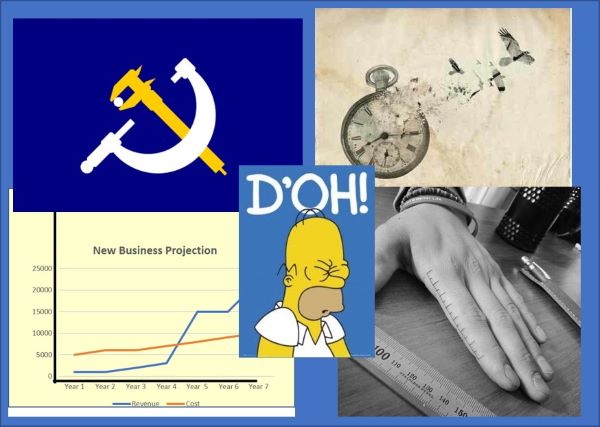
“D’oh!” – Change Metrics Screw-ups
“If you can’t measure it you can’t manage it.”
By the time you lead change you’ve been slapped sick with this cliché.
Many change leaders are managers, responsible for KPIs (key performance indicators). The phrase key performance indicators was coined by Art Schneiderman of Analog Devices in 1987, and popularized by David Norton and Robert Kaplan in their writings about the Balanced Scorecard.
The idea was a few simple measures across four perspectives: financial, customer, internal operations, and innovation and learning. The intent was to encourage more metrics than just financial ones to operate the business in an integrated way. Unfortunately this has morphed into measuring everything all the time. Somehow the defining word ‘key” was lost, but now managers cringe at the letters K-P-I.
When managers hear about change metrics, the idea of being held accountable for more KPIs may not fall on receptive ears. Most organizations should reduce the number of metrics rather than increase them.
Screw-up: piling on change KPIs without rationalizing other metrics.
Measuring change – Don’t rely on single lagging metrics
However, change must be measured; otherwise how would you know that you’d changed. Whether a business is improving, or innovating, there is a before and after, a delta.
Managers often talk about a single number, sales of $x, numbers of products shipped, or people trained. Even when managers talk in terms of ratios like return on capital employed (ROCE or earnings before interest and tax/ total assets-current liabilities ) or days sales in Inventory (DSI -products in inventory /daily product sales) it is a single number.
If you watch change leaders they talk in terms of two numbers, the delta. “$X sales last month vs. $Y sales this month and our DSI has moved from ninety days to fifty four days. Production isn’t keeping pace with the increase in sales and if we don’t improve we may face a stockout within six months.”
Successful change leaders talk trends. They understand that change is volatile, sometimes “two steps forward, one step back,” or even sometimes “one step forward two steps back,” but they keep focused on forward progress using overall trends to help.
Screw-up: focusing on a single metric at one point in time, “Profit is down!”
0 likes · 0 comments
BusinessAlan Culler
3 years ago
Imagination

What is imagination?
Is imagination a mental faculty to create objects and concepts that cannot be seen, heard, or touched with the senses? Is it the foundation of creativity, art, and innovation? Is it emotional? Can imagination help us be more sensitive to the feelings of others? Can imagination turn destructive creating a downward spiral of negative self-images and envisioned judgements?
I imagine all these characteristics are true.
Is imagination only visual?
”In my mind’s eye” is where Shakespeare had Hamlet tell Horatio he saw his father’s ghost, (or did he see a “real ghost?”)
Imagination is sometimes described as visual, as mental pictures, imagery, visualization. While mental imagery and visualization techniques do rely on imagination, other senses can be involved.
We can easily imagine sound, which many musicians would quickly attest. We can imagine smells or texture, You can test this for yourself. Have you ever said something smells, feels, sounds “entirely different than I imagined.”
We think we can imagine another’s feelings, but we should be careful that our imagining doesn’t become projection. It is just better to ask someone how they are feeling.
Is imagination like dreaming?
Maybe. Both are mentally produced sensory feelings that aren’t there. Imagination is a capability of the conscious mind; dreaming happens when you are asleep. It is an unconscious process.
There are some similarities between imagination and the dreamworld. Both aren’t limited by reality or what you have seen before and remember.
I’m told that Fritz Perls, psychiatrist and one of the founders of Gestalt therapy said about dreams
“All parts of the dream are you. If you dream about a house. The house is you. If you dream it is on fire, the fire is you as well.”
To interpret dreams, Perls recommended to give voice to each part of the “you” in the dream. I tried this once. I talked as a broken skateboard, as the hill down, as the hill up, and in the process realized that my unconscious was telling me to stop working 100 hour weeks before my body broke down. I used my imagination to interpret a dream.
Imagination is an active capability. Is dreaming more passive or is our unconscious more active than we give it credit for?
0 likes · 0 comments
BusinessAlan Culler
3 years ago
Are Ray Dalio's "Principles" Dragonfire?"
.I read Ray Dalio's 2017 book “Principles” fully expecting to disagree with it and perhaps to vehementlt dislike it. I joked that I was going to read the operating manual of House Targaryen (After the George RR Martin prequel to :Song of Ice and Fire (HNOs Game of Thrones).
Did it stretch my mind as intended -some,. My extensive review is poste on Medium:
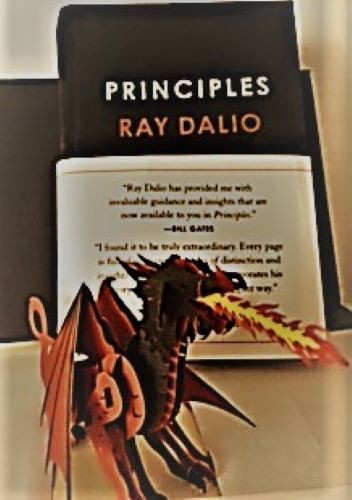
Are Ray Dalio’s “Principles” Dragonfire?
Ray Dalio is a successful investor, the founder of Bridgewater Associates, one of the largest hedge funds and the fifth largest private…
https://medium.com/@alan_69406/are-ray-dalios-principles-dragonfire-237efdc1936a
0 likes · 0 comments
EntrepreneurshipAlan Culler
3 years ago
Avoiding Leadership Dysfunction
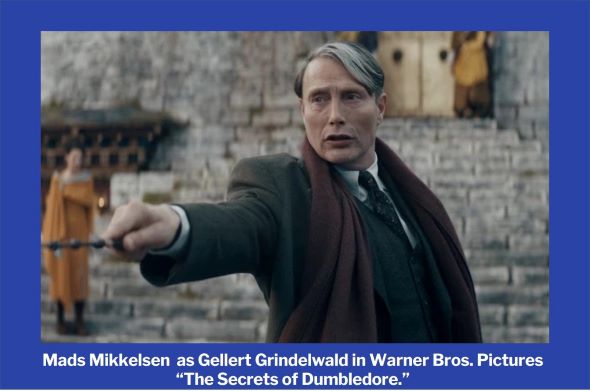
With apologies to regular readers of my posts for the repetition, I have a point of view about the difference between management and leadership:
- Managers work in a steady state environment and are accountable for getting the work done and for developing their people to get the work done and improving
- Leaders work in an abnormal environment, change, emergencies, and are accountable for direction and for getting people to follow, “Hey guys, this way, follow me!”
There’s a reason why the military always talks about leadership; they are preparing their workers for the ultimate abnormal environment, war.
In business, management skills and leadership skills are often expected from the same person, your boss. Over my career the business press has progressed from talking about management skills to leadership skills. I think this is for three reasons:
- Nobody wants to be the boss or be bossed. Managers and supervisors are looked down upon; everybody wants to be a leader.
- We live in an increasingly abnormal business environment, constant change -changes in technology that change industries overnight, mergers and acquisitions and other structural changes, changes in societal norms, customer and worker attitudes and expectations. As someone said to me “There is no steady state!”
- In this environment influence, peer leadership, has increased in importance, and direct lines of authority, have had to respond or as someone else said to me, “You can’t tell anyone what to do anymore!”
So everyone is a leader, even the boss and everyone has an opinion on leadership. If you read LinkedIn, there are some bad leaders out there. Here are a few of the dysfunctions of leadership:
- Unclear, poor, wrong direction: People will forgive a leader who is wrong, if he or she admits it or is transparent about what is a guess. Lack of clarity, confusion is less forgivable, especially if followers pay for the consequences. Symptoms include:
- A vision that keeps changing. Some evolution is to be expected in uncertain times, but wild swings in the way a leader talks about the change implies the leader doesn’t know and hasn’t said “I don’t know.”
- KPI of the week -most organizations have too many key performance indicators, but the change should have two to four at most that the leader keeps coming back to. At British Airways it was customer service (as rated by JD Power) and profit.
- Tunnel-vision and trivia – for instance a leader who picks apart cost minutia in an innovation that will lead to doubling market share and profit.
- “He doesn’t want to lead you; he just wants you to follow him.” This was a quote about the villain Grindelwald from the movie “The Secrets of Dumbledore.” It describes a narcissist who craves the adulation of followers, but gives nothing back. He sees no value for others, but feels entitled to their worship. It is all about the leader when it should be all about the direction, the vison, the mission and the followers.
In the movie, Grindelwald, is a psychopath, who manipulates people to obtain power for evil purposes. In your life, the leader may just be ego-centric, but glimmers of the expectation for adulation still exist.
1 like · 2 comments
BusinessAlan Culler
3 years ago
Bankers and lawyers and financial literacy . . .
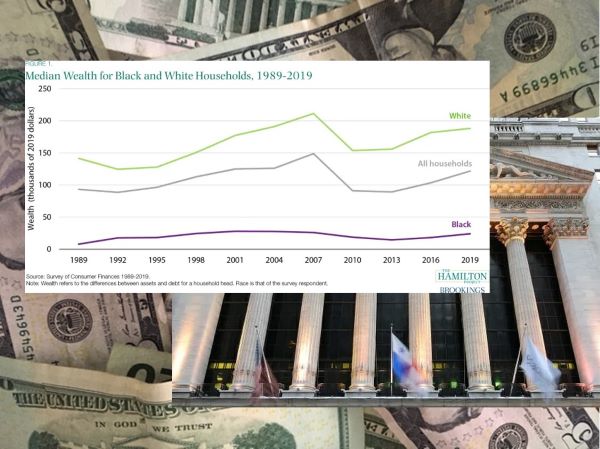
“I banked this entrepreneur through three bankruptcies because I believed in him. Ultimately he hit and is one of our most successful clients.”
I interviewed this loan officer in the sea of dark marble at the Toronto branch of a Canadian clearing bank, doing research for sales training.
Even at the time, I knew this financial access wasn’t available to everyone.
I remember my father Ray reflecting on his father Harry and Culler Printing.
“Harry always thought that bankers and lawyers were ‘thieves in suits,’ so when I took over the shop I avoided them too.”
“We financed the Heidelberg [a large four-color offset press] through the Heidelberg company because I thought the bank would steal it if we missed a payment. Harry and his father-in-law homesteaded and cleared 175 acres on Alligator Alley and I lost it for $7 in back taxes in 1934 because I didn’t trust the lawyer to negotiate with the taxman.”
This is my family legacy.
I hate debt. Despite my MBA, I never learned Robert Kiyosaki’s Rich Dad Poor Dad lessons, like generating passive income like Mike Johnson talks about.
I am fortunate. I had some good years. I’m not a billionaire, but I’m retired, living the downsized dream.
It is a financially unequal world. Low income people, especially people of color, are at an extreme financial disadvantage and, like my father, distrust the people who might help them get a leg up.
Some would say – “That’s THEIR problem! Nobody GAVE me anything!”
Some would take advantage of this group with payday loans and worse.
Some would say “It’s hopeless – depressing!” I‘ve felt that way myself.
That’s why I was heartened to learn that someone I know is doing something about this crisis.
A start-up called Percapita plans to bank the underbanked and help low wage workers enter the financial system. They plan to offer a digital financial services platform with a variety of products. They are partnering with corporations, giving their workforces access to financial products for the lowest fees in the industry.
Percapita is a business, not a charity. They're using capitalism as a force for good. I wish there were more such businesses.
Full disclosure: I know Alex Ehrlich, one of Percapita’s founders. Alex was the student lecture chairman at NYU in 1978-79, my customer when I was a speakers agent. Alex and I maintained contact over the intervening 43 years, including a lunch recently. Other than this relationship, I have no stake in the company and Alex did not ask me to write this.
Percapital is a startup. They’re raising money, looking for corporate partners in hospitality and healthcare. It isn’t clear they’ll make it.
I believe they could change a part of what is wrong with the world.
I hope you will follow them, tell others, and join me in hoping for their success.

Percapita
Maybe then the next Alligator Alley story will have a better outcome.
0 likes · 0 comments
BusinessAlan Culler
3 years ago
Recession Leadership

“Geesh, Pop, doncha know there’s a Depression going on?”
The year was 1933. Tony was home for Christmas from the Harvard Business School and he couldn’t believe how dumb his father was.
“I dunno, Tony. Business has been OK.” Tony’s father ran a hot dog business in New York City. He had about fifty pushcarts on street corners and he had just received a concession at Yankee Stadium.”
“Pop, Pop, Pop. You say that now, sure, but everywhere you look people are out of work. Big companies are laying of more workers every day. Things are bad, Pop. You need to be smart, cut back now.”
“I dunno, Tony.”
“ Pop, read the newspaper.”
Tony went back to school and the old man read the newspaper. Things were bad all right. The whole paper was full of how bad things were.
The old man bought cheaper hot dogs and day-old buns. He cut out onions altogether and added water to the ketchup and mustard to make it go further. Some of the street corner guys complained, but he answered them with Tony’s words, “Doncha know there’s a Depression going on?”
The street corner guys weren’t selling out anymore, so the old man cut back on his orders. He started to run out of dogs at Yankee Stadium before the seventh inning stretch. Stadium management didn’t like that much, but the old man knew that it would just be a matter of time before people at the game just started buying fewer hot dogs like the people on the street.
In June when Tony came home, the old man told him he might not have the money to send him back for the second year. The business was down to thirty push carts and he’d lost the Yankee Stadium contract.
“I guess you were right, son. There is a Depression going on.”
This is an old story
I saw a photocopy of this story on my boss’s wall in the 1970s. Sam said someone gave it to him twenty years before. He asked his salespeople read it and then he’d ask us what we thought it meant.
Most of us got that negative attitudes can create a self-fulfilling prophesy. Some of us saw that the old man had cut his quality in ways that drove away his customers, no onions, watery ketchup and mustard, stocking out before the seventh inning rush at a baseball game. A few of us were able to generalize that all sectors and channels do not suffer equally in a recession.
0 likes · 0 comments
BusinessAlan Culler
3 years ago
What I Am Reading
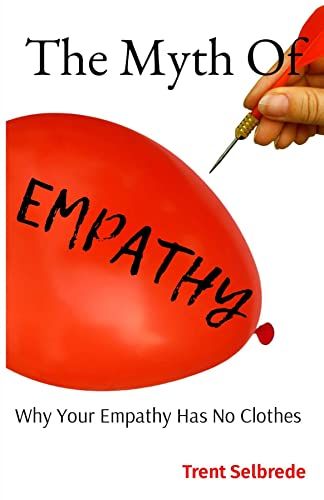
I Just finished reading Trent Selbrede’s book The Myth of Empathy: Why your empathy has no clothes. Thanks thom h. boehm for recommending it.
Full disclosure: I like the idea of empathy. I think my upbringing, my training as an actor, the variety of service and manual jobs I had early in my career created an emotional awareness that helped my career. I never wrote this on a resume or client proposal, but I liked it when clients told me that I saw unintended consequences of their behavior that they didn’t see.
So I didn’t expect to like this book, but I did. I found myself agreeing with Trent more than I thought I would.
Trent isn't arguing for a selfish world. He just believes that empathy as gushed about on social medial is fake.
He maintains that it is impossible to truly understand someone else’s experience and feelings. When we profess to, when we share our own stories to "relate" we run the risk of not only being inaccurate, but of being really insulting and making things worse for the person your trying to help.
He shares some horrific stories to illustrate - telling a mother whose son' is in a vegetative state -"You may be his birth mother, but I loved him as much as you." Yuck!
I’ve never done anything like that. But I sometimes share stories of similar experiences I’ve had with people who are having a tough time. As a result of reading Trent’s book, I’m going to do that less and certainly be a lot more careful when I do.
I’m also going to resist my desire to “solve the problem” more.
Trent writes about the words we use for attending to the emotional needs of others: Sympathy, Pity, Compassion, etc. Some will say “Oh that’s just semantics!”
Semantics is a branch of the philosophical disciple of semiotics, signs, images and symbols that guide our lives. Semantics is the study of meaning.
So semantics is not nothing. Words describe and direct our behavior.
There are some humorous parts in the book. “What if I don’t want to put on somebody else’s shoes? What if they are smelly?”
Trent also shares his own personal history, which I have to say made his points well. But no, Trent, I don’t think I fully understand your life.
I had some difficulty with Trent’s treatment of “empaths” or people who earn their living through emotional intelligence. The humor seems little brittle and mean-spirited.
I'm still a believer in empathy. I know we can't truly understand another's experience, but it doesn't hurt to try. I agree with Trent that attending to the emotional needs of others is tricky. Carl Rogers said, “Help that isn’t asked for is usually perceived as interference rather than help.”
Being sensitive to others means offering and asking, but recognizing that even that can increase undue pressure.
I absolutely agree with the four behaviors he ends up with as alternatives to empathy.
A worthy read, a worthy topic for discussion.
0 likes · 0 comments
in Canal Oficial de Ciencia de José Manuel Nieves.
An Orderly Transition

The Belousov – Zhabotinsky or B-Z reaction is formed by combining several chemicals including a bromine and an acid in a Petrie dish. The solution is unstable, and in a non-equilibrium state it oscillates. The pattern, shown in this photograph, emerges slowly at first little blue dots in a red-brown solution, but accelerates into spirals and curves.
This reaction was so counter-intuitive that in 1951 when Boris Belousov, who first observed it, tried to publish his findings the journal refused saying he must have got something in the experiment wrong. In 1961 Anatol Zhabotinsky, a grad student was able to reproduce these same effects.
The B-Z reaction has now been recreated many times. B-Z is one of several non-equilibrium chemical reactions. The Briggs-Rauscher reaction where a beaker oscillates from clear to opaque blue or black in a pattern that can be precisely modeled mathematically.
Oscillation is feature of change in a non-equilibrium state and not just in chemicals. We are all familiar with what happens when one places a microphone too close to a speaker: “Screeeeeeeeeeeeeek” - feedback! The sound waves coming from the microphone are amplified through the speakers and the sound waves from the speakers are picked up by the microphone and so on, wave oscillation heard as ear splitting sound. Electric guitarists use this same principle, but control the gain to make distortion, the “dirty” or “fuzz box” sound of heavy metal music and Chicago blues.
The first law of thermodynamics is that energy can neither be created nor destroyed, it can only be transferred from one form to another. The second law of thermodynamics is that in any closed or isolated system entropy (inevitable decay and decline) always increases. Based upon external input energy (growth) increases, but if the system then remains isolated decline begins. I am not a physicist, but that sounds like a recipe for oscillation.
It says to me that without some external energy input a system’s energy will decline and that system equilibrium requires input-transference balance to avoid a destructive oscillation.
Is this how things break into chaos and how order emerges from chaos? I think so and I think we know this somehow, maybe deep in our DNA. We have expressions like “two steps forward- one step back” or the depressing inverse “one step forward-two steps back”. We observe “growth spurts” and “growing pains” in our children, growing things accelerate and level off.
0 likes · 0 comments
The Triple Spiral
The Triple Spiral

Spirals are an old symbol for change, dynamism, objects, thoughts, or events descending into chaos or ascending to higher order. Spirals have decorated pottery and freezes on buildings for thousands of years. Now studies of chaos and fractals have shown that what we thought were just copies of sea shells or whirlpools are the actual physical representation of the way things change.
The triple spiral is very ancient. In 500 BC, the triskelion shows up on Periclean Greek pottery, the triskelle on La Tene Iron Age Celt metal work, and the triple spiral in the glazes of Confucian and Taoist porcelain in China.
But the oldest extant example of the triple spiral is at the door to the Neolithic tomb at New Grange, Ireland.


This impressive structure was built in 3200 BC by means we are still uncertain of, and oriented such that a single beam of sunlight passes through a tiny slit in the wall and lights the altar inside at the Winter Solstice.
Archeologists have speculated on the meaning of the intersection of the three dynamic spheres: Sun-Moon-Earth, Past-Present-Future, Life-Death-Afterlife, Idealism of Youth -Practicality of Maturity- Wisdom of Old Age.
When I got
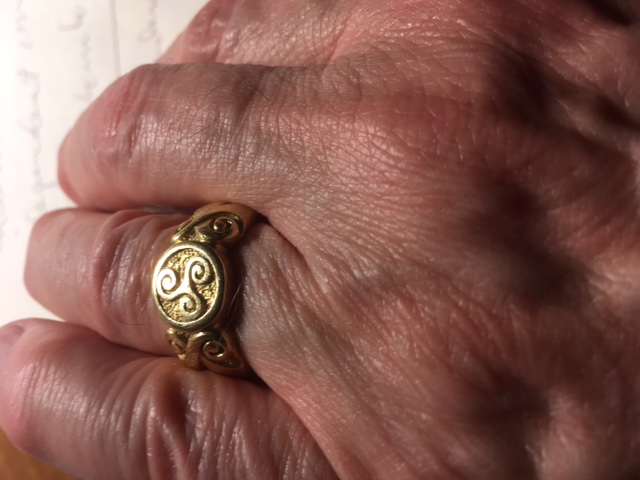
In 2014, when I founded Results-Alliance, a confederation of independent consultants and small firms, I used the triple spiral as a logo. I described the business as a seamless collaboration between consultants and clients.
“We all grow. And the alliance produces results for us all. We have chosen the triple spiral logo to represent that relationship.”
Now as I think about this symbol, I wonder where it fits in the last quarter of my life. I still have some of the idealism of youth, not enough maturity and I’m perpetually seeking the wisdom of old age. (I have discovered the old age part -still looking for the wisdom bit.)
I see the changes in the world – descending into chaos and hopefully ascending into a new order. Perhaps, I should focus on head, heart, and spirit, strength of body, mind and soul.
Perhaps breathing in joy, breathing out love for all the world, and leaving a between-breaths-opening for serendipity, wonder, and magic.
Now that is a triple spiral.
5 likes · 6 comments
Alan Culler
3 years ago
The Gatekeeper

The man was old. His skin was lined and brown like tooled leather. His clothes were worn but well mended. They now fit him loosely and it wasn’t clear if they always had fitted him this way, Perhaps he wore loose robes to keep him cool in summer and warm when the biting wind blew down along the road from the mountains. Or had his body age-wizened leaving him with loose clothing.
With the sun he rose and after a small breakfast went to the gate of the walled city. The road that passed the gate was well travelled, but not by many. There was another city half days walk in either direction down the dusty road. Most of the travelers walked; a few had loaded beasts or pulled loaded two wheeled carts. There were no horses here.
The old man fitted himself into a niche by the gate and read. in late morning a young boy would come with his mother. They would bring cistern of water and offer it to travelers without charge. They sold small vegetable cakes for a copper each.
The city was the halfway point, most drank the water ate the cake and walked on. The old man read what most assumed was scripture.
From the road, a man would call out “You there, Old man,” To these the woman and boy seemed invisible. The old man would raise his head and smile,. “How can I help you traveler?”
The man would complain about the heat or the cold and say he was thinking about an early end to the day..
“What kind of people live in this city?”
“Where are you coming from?” the old man would cheerfully inquire and the traveler would tell.. “Oh, what kind of people did you find there?”
The traveler would sneer, “They were venal and mean. They looked like they would beat me, Everyone tried to cheat me, but I was too smart for that. They served me garbage and day old food and thought that I would sleep on last month’s straw, telling me it was all they had.. It was awful!.”
“Alas, traveler. This city is filled with those people as well. It’s best to walk on down the road. Perhaps you’ll have better luck there.”
Some such travelers thanked the old man or threw a copper in the dirt at his feet. Most did not. The old man went back to reading.
On occasion a person would buy something from the boy and his mother, smile and converse with them.
Then this person would siddle over toward the gate and say, “Excuse me, Grandfather. I am sorry to disturb your study.”
The old man would look up and smile, “’Tis naught but some old poems. How can I help you traveler?”
The traveler would then ask about the poems or tell his own name and ask the old man’s. Eventually pleasantries would be dispensed with and the conversation would proceed as before.
“What kind of people live in this city?”
“Where are you coming from?” the old man would cheerfully inquire and the traveler would tell. “Oh, what kind of people did you find there?”
“Oh ‘twas wonderful! Everywhere people offered to help me. Our dealings were always fair. They fed me well and I slept on the same straw they themselves used.”
“You will be most welcome here, traveler for here you will find people of the same kind. Please come in..”
0 likes · 0 comments
Alan Culler
3 years ago
River Rescue -posted on Medium today

River Rescue
Sitting with his back to the great oak, sun upon his face and the river swift and wide before him, Yon tried to empty his mind. It was no…
0 likes · 0 comments
Alan Culler
3 years ago
Dark and Sunny

The brothers were close in age, identical twins, in fact, born two minutes apart. This was a source of pride and pain as the “older” twin was always saying “Respect your elders!” The younger twin didn’t like that teasing much, but his frowns were not long-lived.
People usually had some difficulty telling the boys apart; they seemed to be exact physical copies of each other, but these boys did not grow up with the fun of pranks exchanging places as some twins do. For as identical as they were physically, whenever they spoke it was apparent that they were completely opposite in attitude.
The “older” complained a great deal. He saw the defects in anything. A spring cloudless day was “a little cold.” A person’s friendly gesture caused him to wonder “What does he want?” When the family was making plans, he often said things like, “Let’s consider the worst case scenario,” which sounded strange when he was six.
His brother’s disposition was completely opposite. He expected good from everything and everyone. On a day dark with rain clouds he would say, “I think the sun is poking through.” When it poured, the youngest twin would say, “It’ll be over soon, I fact, I think it’s stopping.”
The neighbors called the boys “Dark” and “Sunny” though those were not their names. When unsure of something they would jokingly say, “Let’s ask Dark and Sunny and then pick what’s in between, that’ll be closest to the truth.” Everyone would laugh.
Once when the boys were eight years-old, they overheard a group of neighbors tell.one of these jokes. Dark was unhappy. “They like you better than me. They think I’m depressing. Why do they call me Dark?” Sunny tried to comfort his brother, “Come-on, bro, they’re only joking, let’s go walk the bridge railing.” “Too dangerous moaned, “Dark.”
The parents grew concerned about their boys. The twins ninth birthday was coming up and the parents hatched a plan. The adults had always given their boys gifts that were the same or complementary, similar toys, games they could play together, matching clothes, with small differences so they could tell them apart in the wash.
This year they decided would be different.
The birthday came. The parents took Dark into a room with nine brightly wrapped presents that contained toys, and clothes.
They handed Sunny an old shovel ad told him to clean the manure from the barn.
The birthday wore on. Dark opened each present. He thanked his parents for each one, but he did find fault with all. This toy “/poorly made”. That one had “sharp edges.” This sweater was an inconsistent color. He hesitated to play with toys that might break or wear clothes because he might ruin them.
The parents despaired, but decided to check on Sunny.
They found the younger twin at work on the load of manure that they parents had delivered. The dung pile filled the barn and the boy worked furiously. He was sweating, but smiling as he shoveled. “How’s it going?” They asked.
“Great!” the boy enthused. “I figure with all this manure, there’s gotta be a pony in here somewhere.”
0 likes · 0 comments
Do you want to manage your own group?



